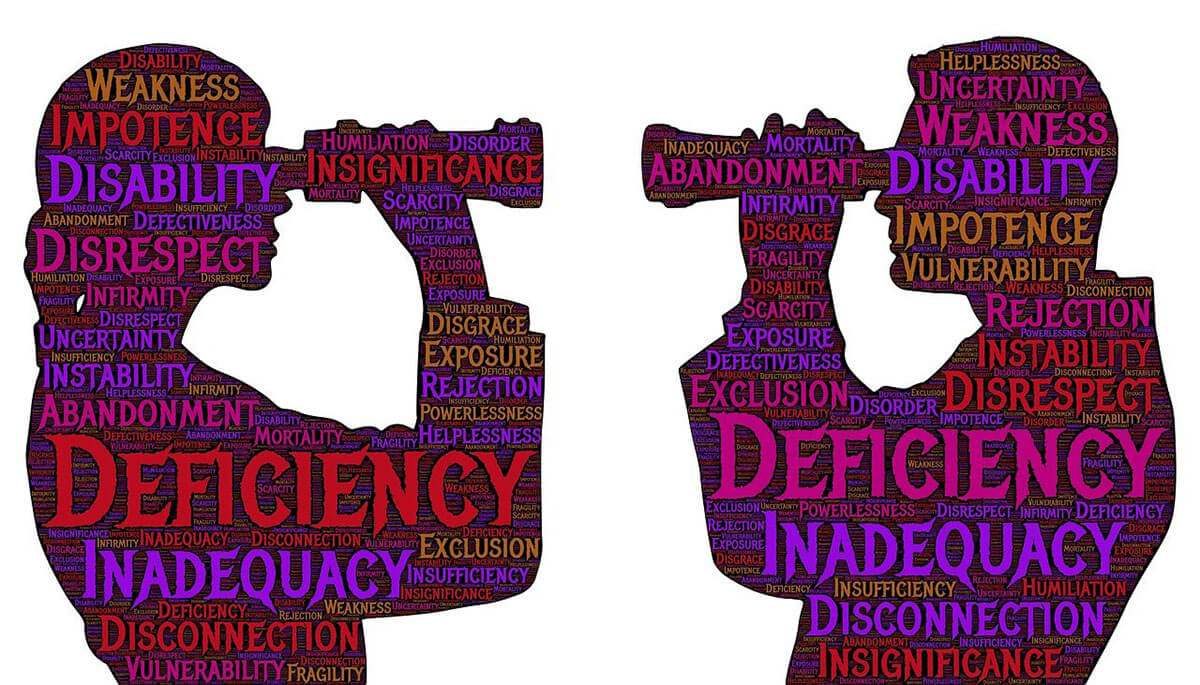Overcoming Insecurities in Relationships
The great irony of human nature is that while we long for intimacy and connection, our insecurities often push us away from the very people we long to be close to. While our insecurities affect every aspect of our lives, it is in our intimate relationships that they often manifest the strongest, and the negative consequences can be the most painful. So how then can we be healthier in ourselves – more secure – in order to be able to draw near to each other and make deep connections? In this article we look at ways that couples can address issues related to insecurity before they become a problem. Much of this advice can be applied to our other meaningful relationships as well, as we strive to build ourselves and others up.

Relationships can become a veritable petri dish of fear and insecurity.
All those unresolved, murky emotions from childhood, as well as baggage from past relationships, can bleed over and contaminate an otherwise decent connection with your partner.
Miscommunications can fester into resentments. Old wounds and insecurities become fresh again and introspection can be a painful reminder that healing takes time and often doesn’t follow a linear path.
Common causes of relationship insecurity
Every relationship is unique, but there are common themes of insecurity that crop up for many couples.
Distrust
There are dozens of reasons people may distrust their partner. It may be a distrust regarding the other person’s commitment to monogamy or a distrust about spending habits or ability to tell the truth; distrust can show up in a host of ways and can be devastating to a relationship if not addressed.
Feeling disrespected
If one feels disrespected it can taint many other aspects of the relationship. It may be blatant and obvious or more subtle in nature, but perceptions of disrespect can be toxic to a relationship.
Inability to be vulnerable
A key factor in a successful, loving relationship is one’s ability to be vulnerable with their partner. When a couple is defensive with one another and this becomes a pattern, it can create distance within the relationship that can be hard to overcome.
Relationship repair
Couples can move beyond insecurity and foster a deeper, lasting connection.
Insecurity takes time to heal. Both people need to be willing to do the work and persist, even when things get tough.
Designate ‘talk time’ each day
It’s so easy to get swept up in the daily grind and forget to pay attention to one another. Set aside time every day to shut off your devices and all screens (to avoid distraction) and sit across from one another and talk.
Look at each other. Ask questions about how the other person is feeling, how their day went. Listen closely. Respond compassionately. It is a simple thing and it can do wonders to improve a relationship.
Ask one simple question
Ask what your partner needs to feel loved and secure in the relationship.
Try to identify several concrete ways this can be demonstrated and follow through on the request consistently and mindfully.
Check in with your thoughts
If you are having a moment of insecurity, sit with it for a few moments and ask it some questions. Where does this insecurity come from?
Am I responding to something real or perceived? (i.e., am I making assumptions based on fear or responding to something that actually occurred?)
Make compassion your baseline
When we are feeling hurt or insecure, it can be difficult to maintain a stance of compassion. Try to make compassion (for self and partner) your baseline.
Think about what drew you to this person; also think about what their insecurities are. As you envision your partners strengths and fears, allow your compassion for him or her take centre stage in your mind.
Now do the same for yourself. What do you love most about yourself? What are your fears? Allow for self-compassion to wash over you. When we can harness our compassion in this way it can change the landscape of a relationship in powerful ways.
Couples counselling can also be a helpful way to untangle and resolve insecurities. When a couple is to the point of being unable to independently work through relationship challenges, an objective professional can be a valuable assistant in the process.
[This blog post originally appeared on Teyhou’s website www.livingwithfinesse.com ~ some content may have been modified for the UK & Irish context.]
